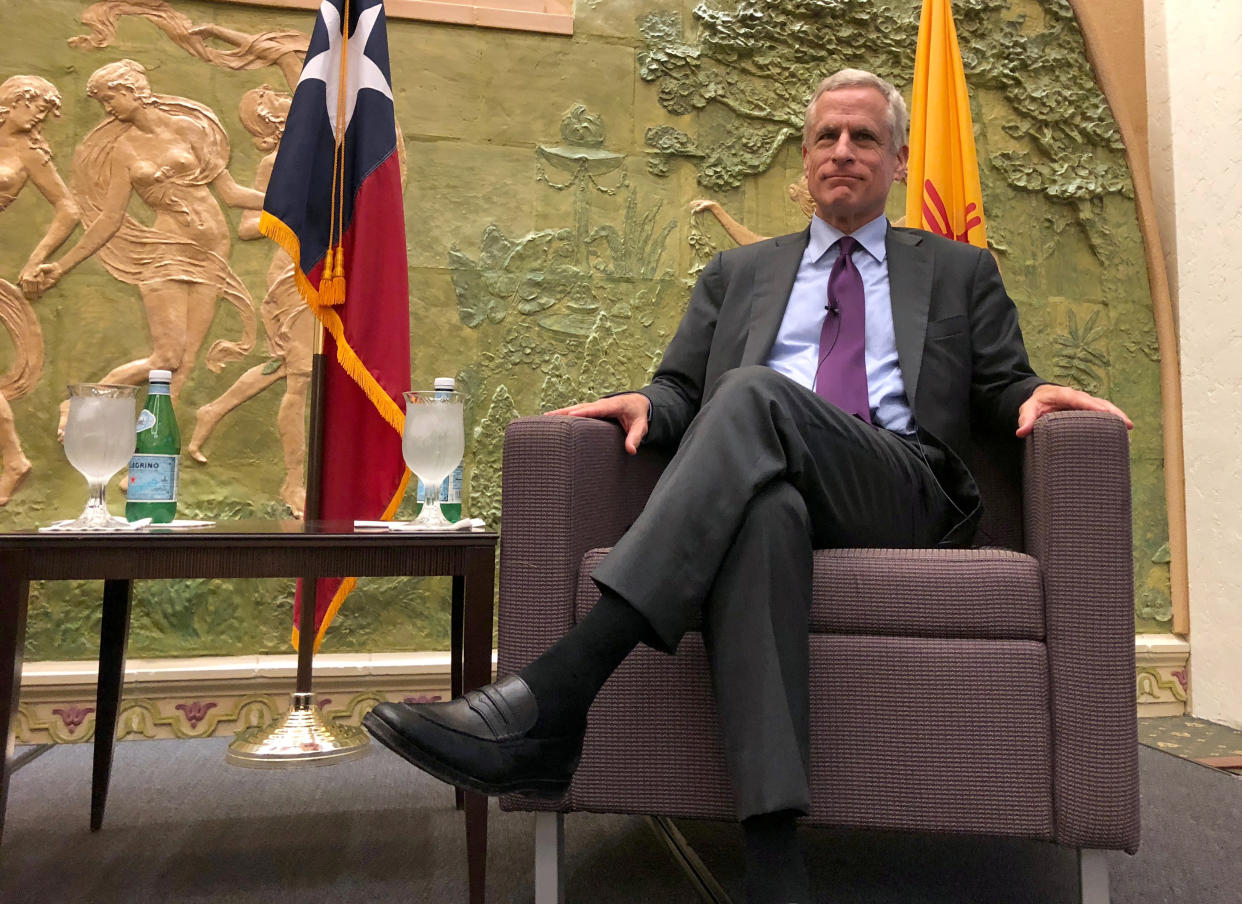Dallas Fed's Kaplan: 'Too early' to make a judgment on rates

Federal Reserve Bank of Dallas President Robert Kaplan said Monday it may be “too early to make a judgment” on whether or not the central bank should cut rates.
In an essay published Monday afternoon, Kaplan wrote that heightened trade tensions and slowing global growth have increased risks to the U.S. economy, but said things could change in the near future.
“In this situation, I believe it would be wise to allow events to unfold a bit more before making judgments regarding the stance of monetary policy,” Kaplan wrote. Kaplan is not a voting member of this year’s Federal Open Market Committee.
Kaplan painted a positive picture of the U.S. economy, saying that the country is on pace for “solid” GD growth in 2019 and that the labor market is “at or past full employment.” Fed policymakers have struggled with its 2% inflation target, but Kaplan said the Dallas Fed’s “trimmed mean” measure - an alternative measure of core inflation - has the Fed running at about 2%.
Kaplan said policymakers need to be careful in providing more monetary accommodation, warning that it could build up leverage in the financial system. Over the past few months, economists have been watching leveraged loans, the market for large corporate debt that gained popularity when rates were near-zero.
“I believe that we currently are in the neighborhood of a neutral setting for monetary policy—that is, we are likely neither accommodative nor restrictive,” Kaplan wrote.
In the Fed’s June 19 meeting, the Fed kept rates unchanged in the target range of 2.25% to 2.5% but eight of 17 policymakers projected at least one rate cut by the end of the year. Markets have perceived that as a sign of a coming rate cut, and Fed funds futures contracts are currently pricing in a 100% chance of a cut at the end of the Fed’s July 31 meeting.
Taking additional time
Kaplan’s remarks come on the heels of a manufacturing survey from his own district showing companies growing more nervous about where the economy is headed. Survey data released Monday morning reported that companies in Texas - the country’s largest exporter - have the gloomiest outlook on the economy in three years, and have held back on capital expenditures.
The reason? Tariffs. More respondents to the Dallas Fed’s survey are reporting a decrease in profit margins as a result of tariffs, which explains the darker outlook and pullback in capital expenditures.
But Kaplan appeared to hint that those trade tensions could be reduced. All eyes are on the G-20 Summit taking place in Japan this weekend, where President Donald Trump is scheduled to meet with Chinese President Xi Jinping.
Kaplan said that the heightened trade tensions are weighing negatively on companies, but said a resolution would prevent those headwinds from leading to persistent effects on the economy. He wrote Monday that he would be “highly vigilant” for indication that trade or domestic data spills “over into a material deterioration of the economy outlook.”
“In the meantime, I believe it would be wise to take additional time and allow events to unfold as we consider whether it is appropriate to make changes to the stance of U.S. monetary policy,” Kaplan wrote.
Brian Cheung is a reporter covering the banking industry and the intersection of finance and policy for Yahoo Finance. You can follow him on Twitter @bcheungz.
Largest U.S. banks clear first round of 'stress tests,' fewer banks tested
Congress may have accidentally freed nearly all banks from the Volcker Rule
Read the latest financial and business news from Yahoo Finance
Follow Yahoo Finance onTwitter,Facebook,Instagram,Flipboard,SmartNews,LinkedIn, YouTube, and reddit.


